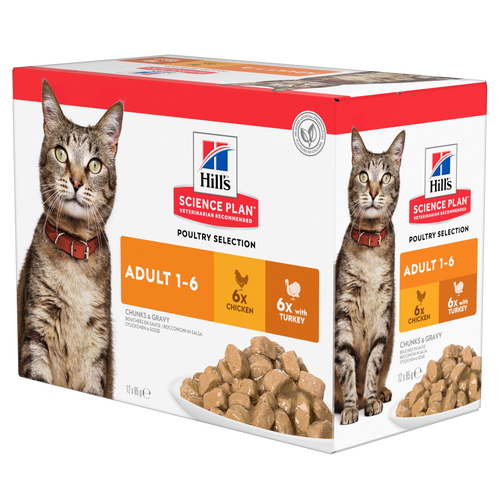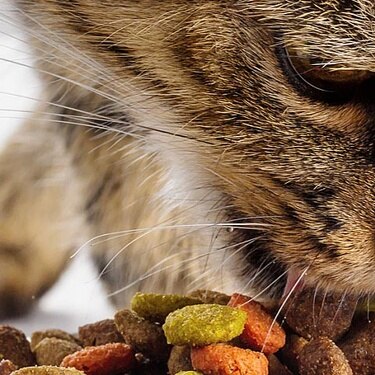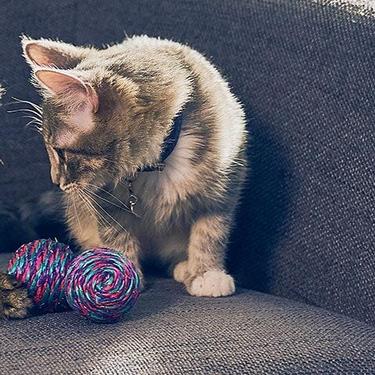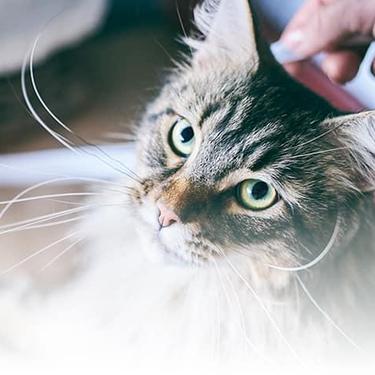
-
Find the right food for your petTake this quiz to see which food may be the best for your furry friend.Find the right food for your petTake this quiz to see which food may be the best for your furry friend.Featured products
 Adult Wet Dog Food with Beef
Adult Wet Dog Food with BeefHill's Science Plan Adult Multipack Wet Dog Food with Chicken, Beef & Turkey are complete premium pet foods for adult dogs from 1 year. Your dog will love these deliciously smooth and savoury minced loaves, formulated for balanced nutrition and overall health.
Shop Now Puppy Food
Puppy FoodHill's Science Plan Puppy Multipack Wet Dog Food with Chicken & Beef are complete premium pet foods for growing puppies from weaning until 1 year old and for pregnant and nursing dogs. Your puppy will love these deliciously smooth and savoury minced loaves, formulated for balanced nutrition and overall health.
Shop Now Mature Adult Dog Food
Mature Adult Dog FoodHill's Science Plan Mature Adult Multipack Wet Dog Food with Chicken & Beef are complete premium pet foods for mature adult dogs from 7 years. Your dog will love these deliciously smooth and savoury minced loaves, formulated to deliver the appropriate amount of energy to support the needs of adult dogs.
Shop NowFeatured products Light Adult Multipack Wet Cat Food with Chicken & Ocean Fish
Light Adult Multipack Wet Cat Food with Chicken & Ocean FishTender chicken chunks in gravy for cats, with L-carnitine and fewer calories for ideal weight management. Packed with high-quality protein, omega-6s, and vitamin E for shiny fur and healthy skin.
Shop Now Adult Multipack Wet Cat Food with Beef, Ocean Fish & Chicken
Adult Multipack Wet Cat Food with Beef, Ocean Fish & ChickenTender chunks in gravy for cats, with high-quality protein to maintain lean muscle. With vitamin E and omega-3s & -6s for healthy skin and balanced minerals to support healthy vital organs.
Shop Now Mature Adult Wet Cat Food with Chicken
Mature Adult Wet Cat Food with Chicken
Tender chicken chunks in gravy for mature adult cats. Made with easy-to-digest ingredients, high-quality protein for lean muscle maintenance and antioxidant vitamins C+E for optimal health.
Shop Now -
Dog
- Dog Tips & Articles
-
Health Category
- Weight
- Food & Environmental Sensitivities
- Urinary
- Digestive
- Joint
- Kidney
-
Life Stage
- Puppy Nutrition
- Adult Nutrition
- Senior Nutrition
Cat- Cat Tips & Articles
-
Health Category
- Weight
- Skin & Food Sensitivities
- Urinary
- Digestive
- Kidney
-
Life Stage
- Kitten Nutrition
- Adult Nutrition
Featured articles The Incredible Science Behind Your Pet's Microbiome
The Incredible Science Behind Your Pet's MicrobiomeLearn what your pet's microbiome is, how it contributes to your pet's gut and overall health, and why nutrition is important in maintaining healthy microbiomes.
Read More Show some love with wet foods: a great choice for pets with health issues
Show some love with wet foods: a great choice for pets with health issuesShow some love with wet foods: a great choice for pets with health issues.
Read More The Right Diet For Your Pet
The Right Diet For Your PetIn people, the right diet is very important. If you are eating the wrong way for your metabolism, activity level, age and lifestyle you could end up with health issues.
Read More -


Have you noticed your cat straining to go to the toilet? Maybe some diarrhoea, or blood or mucus in their poo? If so, your cat may be suffering from colitis, or inflammation of the large bowel. This can be pretty uncomfortable for them and, with possible causes ranging from mild to serious, it’s important to try and spot it early and find out what’s going on.
Causes of cat colitis
Colitis is most common in cats under five years old but can occur at any age. Some of the most common causes are:
- Food-responsive enteropathy (FRE). FRE is one of the disorders that were previously called Inflammatory Bowel Disease (IBD). Nowadays, together with other disorders such as steroid-responsive enteropathy, the more general term chronic enteropathy (CE) is used. CE is used to describe any chronic disorder of the GI tract, typically any condition lasting more than three weeks.
- Adverse food reactions. Allergies and intolerances to certain foods can cause colitis. This is likely to continue until the offending ingredient has been eliminated from the diet.
- Parasites.
- Stress. Stressful events, like a new baby or a trip to the cattery, or just living with other cats, can cause colitis.
- Tumours and polyps in the bowel.
- Infections.
- Swallowed foreign objects.
Signs of colitis
As we mentioned, the most common signs of colitis are blood and mucus in the poo. Sometimes there will be diarrhoea too, and you may notice your cat straining to go to the toilet or spending more time in the litter tray than usual. This is because they feel like they need to go even when they don’t. It’s very important if you see your cat straining that you seek prompt veterinary advice. This is partly because colitis needs treating, but also because straining can be a sign of cystitis or a blocked bladder and this is a medical emergency.
Any digestive or toileting issues can be tricky to spot if your cat goes out to go to the toilet. If colitis goes on for some time (chronic colitis), you might notice your cat losing weight, becoming lethargic, or going off their food. As with all things when it comes to our pets, it’s a good idea to be observant. If you know what’s normal, you’ll soon spot when something is up.


Tasty Tips
Treating colitis
Naturally, with lots of different possible causes, the treatment for colitis will vary depending on what the issue is. Many cases get better within a couple of days, particularly those caused by a cheeky stolen treat, but if it persists for more than 48 hours or your cat seems in pain, then a vet visit is needed. It will help if you can take a sample of poo with you, as your vet may want to test for signs of worms or infections.
Treatments include:
Changing the food. Because many cases of colitis are food-responsive, your vet may want to put your cat on a highly digestible food aimed at supporting a quick return to a healthy gut. These foods often have good sources of prebiotics to nourish the bacteria that keep the gut healthy. Your cat may only need to have this food for a limited period of time, but you can keep them on it if you and your vet feel it’s a good choice in the longer term.
Some cases of colitis will need anti-inflammatories. Steroids are very good anti-inflammatories and may be used just for a few days, or longer if the condition is chronic.
If your vet suspects your cat may have an allergy or intolerance, they may recommend a diet trial. This usually consists of feeding a food with hydrolysed proteins that can’t cause an allergic reaction in your cat. Or sometimes they might suggest a protein source your cat hasn’t had before, such as duck. Your cat may need to stay on this new food for life.
Antibiotics may be given if your vet is concerned about antibiotic-responsive enteropathy.
If your cat has worms, your vet will treat them and advise about ongoing prevention.
Stress is pretty common in cats, especially if they live with other cats or there are lots of neighbouring cats in the area. Your vet may give medication to help with stress, but often changing the home environment and using things like plug-in pheromone diffusers can make a huge difference, too.
Tumours, polyps and foreign objects in the bowel may require surgical intervention.
Colitis in cats is usually not much to worry about, but it’s important to investigate just in case it’s caused by one of the more serious issues. Your vet would always rather see you early on than risk your cat getting very sick, so don’t be afraid to ask for help if you have any concerns!
Reviewed by Dr. Hein Meyer, DVM, PhD, Dipl-ECVIM-CA


One of our staff authors prepared this article for you
Related products

Tender chicken chunks in gravy for mature adult cats. Made with easy-to-digest ingredients, high-quality protein for lean muscle maintenance and antioxidant vitamins C+E for optimal health.


Tender chunks in gravy for cats, with high-quality protein to maintain lean muscle. With vitamin E and omega-3s & -6s for healthy skin and balanced minerals to support healthy vital organs.

Tender chicken chunks in gravy for cats, with L-carnitine and fewer calories for ideal weight management. Packed with high-quality protein, omega-6s, and vitamin E for shiny fur and healthy skin.
Related articles

From essential vitamins & minerals to different types of meat, learn what to look for when choosing the best cat food for your feline.

There are three common ways to feed a cat. Each way has its advantages and disadvantages.

Kittens grow a lot in their first year, so it is important to provide them with the proper nutrients early, so they grow up healthy and strong. Learn more.

Learn how to make homemade cat treats that are healthy for your pet with this recipe from Hills Pet Nutrition.

Put your cat on a diet without them knowing
Our low calorie formula helps you control your cat's weight. It's packed with high-quality protein for building lean muscles, and made with purposeful ingredients for a flavourful, nutritious meal. Clinically proven antioxidants, Vitamin C+E, help promote a healthy immune system.
Put your cat on a diet without them knowing
Our low calorie formula helps you control your cat's weight. It's packed with high-quality protein for building lean muscles, and made with purposeful ingredients for a flavourful, nutritious meal. Clinically proven antioxidants, Vitamin C+E, help promote a healthy immune system.

